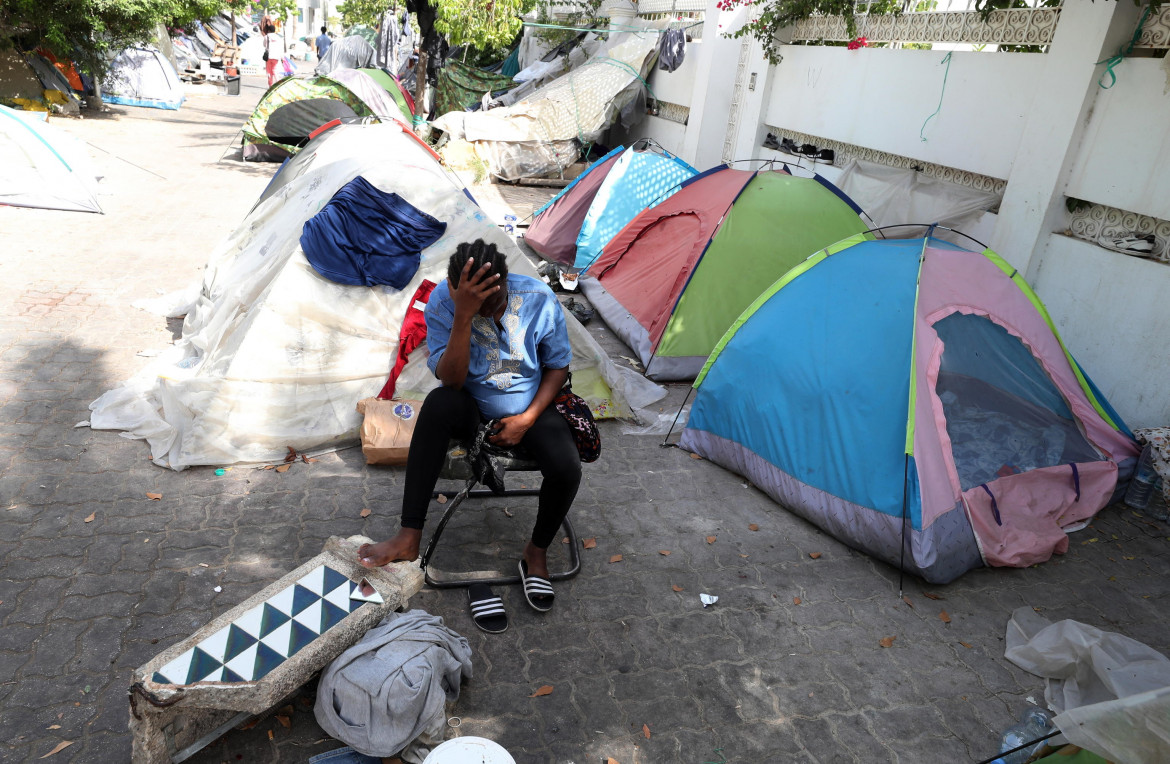Report
Human Rights Watch: Tunisia is not a safe country
The HRW report makes one specific demand: that the European Union suspend its funding to Tunisia for the purpose of controlling its own external border.

In its latest 11-page report, the international NGO Human Rights Watch (HRW) has documented the living conditions of sub-Saharan and Sudanese people in Tunisia in recent weeks, bringing evidence that the small North African state cannot be considered a safe country for this community.
The report comes at a time when the European Union has just signed a memorandum of understanding worth up to €1 billion – a great win for Tunisian President Kais Saied – with €105 million dedicated to the fight against irregular migration. The HRW report makes one specific demand: that the European Union suspend its funding to Tunisia for the purpose of controlling its own external border.
The report showcases 24 interviews, including a woman and a young girl, testifying to all the violence being perpetrated by the Tunisian security forces. In recent years, Tunisia has experienced a continuous increase in racist and xenophobic attacks by the authorities and a part of the population. According to HRW’s reconstruction, since Saied’s February 21 speech in which he accused the sub-Saharan community of carrying out “ethnic replacement in the country,” the climate of widespread violence clearly blew up and then peaked in early July.
Over the last few weeks, Sfax, Tunisia’s second-largest city and one of the most strategic points for the route along the central Mediterranean, has been the scene of attacks and incidents that have prompted thousands of people to go out into the streets or seek refuge in the countryside just outside the urban area. At the same time, the police forces became the protagonists of what amounts to mass deportations to the Libyan and Algerian borders. Some 1,200 people had to survive in inaccessible desert areas for days without food or water.
“Tunisian authorities have abused Black African foreigners, fueled racist and xenophobic attitudes, and forcibly returned people fleeing by boat who risk serious harm in Tunisia,” says Lauren Seibert, refugee and migrant rights researcher at Human Rights Watch. “By funding security forces who commit abuses during migration control, the EU shares responsibility for the suffering of migrants, refugees, and asylum seekers in Tunisia.”
It is against this backdrop that the individual stories highlighted by HRW have played out. The NGO verified that some people were arrested solely because of the color of their skin. In particular, one asylum seeker was beaten and subjected to electric shocks during his detention in Tunis. Five other people claim that they were robbed by police and never managed to get their belongings back.
Interceptions at sea are no exception. The Tunisian Coast Guard is under close scrutiny, accused of performing dangerous maneuvers during rescue operations, and on more than one occasion it has been accused of stealing the engines of boats they stopped and abandoning them off the Tunisian coast.
From 2015 to 2022, HRW estimates that the European Union spent between €93 and €178 million on strengthening Tunisia’s land and sea borders, to which one must add the latest tranche of €105 million. After assessing the country’s internal situation, the NGO argues that this border outsourcing operation by Brussels is illegitimate.
On Sunday, July 16, European Commissioner Ursula von der Leyen, Prime Minister Giorgia Meloni, and Dutch Prime Minister Mark Rutte met with President of the Republic Kais Saied to sign a deal that had been a major focus in recent months. None of them has yet commented on the ongoing situation in the country.
Originally published at https://ilmanifesto.it/tunisia-macche-paese-sicuro-sospendete-i-finanziamenti on 2023-07-20
